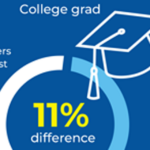BEST EDUCATION JOURNALISM OF THE WEEK
Four years ago when I first came across VICE’s “Last Chance High,” I couldn’t believe what I was seeing: traumatized students trying — and often failing — to handle their emotions, teachers and parents trying — and often failing — to help them.
There on the screen was the bewildering mix of chaos and compassion that I’d experienced in some of my own time spent in schools but too infrequently seen depicted so candidly in journalistic accounts.
I wasn’t the only one. “The first episode can be so overwhelming that we want to run for the doors,” noted the show’s 2014 Peabody writeup.
So you can imagine my surprise and delight when the series appeared last week as a finalist in the EWA 2017 awards, thanks to an updated series that premiered last summer, with judges’ comments calling the series remarkable and gripping.
Its inclusion is one of the highlights of a competition about which I have some serious reservations (see below).
“Last Chance High” spends a lot of time with the teachers and parents whose lives shape what happens in school every day, not all of them doing as much as the kids might need. And it’s got an undeniable raw power that I appreciate. I wouldn’t want this kind of education journalism to be all that there was, but — as in this week’s heated Upper West Side (NYC) school meeting to discuss the integration of some schools — there are times that this kind of direct, visceral approach is needed.
Schools are intimate, intense places. People need to see and feel that in our work.
HONORABLE MENTIONS
TEACHERS
🏆 NYT: State and Local Jobs Under Siege as a Middle-Class Gateway
🏆 Vox: Arizona teachers want more than a raise. They want public schools funded.
🏆 AZ Central: Parents of students with special needs brace for teacher walkout
🏆 Washington Post: School support staff scrape by on meager earnings
🏆 NPR: Most Americans Support Teachers’ Right To Strike
🏆 ABC News: Amid strikes, Americans back teacher raises
OPPORTUNITY HOARDING
🏆 Chalkbeat: Push to curb academic segregation generates a backlash — and support
🏆 NY1: Student diversity push upsets some parents at UWS school
🏆 WSJ: Parents Worry About Diversity Plan for Some Manhattan Middle Schools
🏆 Chalkbeat Newark: Critics say most selective school enrolls too few black students.
INEQUALITY
🏆 Miami New Times: Broward Schools Superintendent Robert Runcie Battles Critics After Parkland Massacre
🏆 Chalkbeat CO: Only 33 black students with disabilities in Denver met expectations on state tests
🏆 Vox: Black girls are disciplined more harshly in school. Dress codes play a big part.
🏆 Washington Post: Racial disparities in school discipline are growing, federal data show
🏆 Mother Jones: Betsy DeVos Is Making It Easier for Schools to Send Black Kids to Jail
🏆 Houston Chronicle: Houston ISD drops proposal to give control of 10 schools to a charter outfit
🏆 Chicago City Bureau: Police officers assigned to schools given no directives.
MISCELLANEOUS
🏆 EdWeek: U.S. 4th Graders Surprise on New Exam of Online Reading
🏆 PBS NewsHour: Schools wrestle with protecting student privacy on Facebook
🏆 WBEZ Chicago: Immigrants shine in new varsity sport in Chicago Public Schools
THE EWA AWARDS PROCESS IS BROKEN. LET’S FIX IT.

On Friday, the Education Writers Association (EWA) came out with a list of finalists for its annual EWA Awards, a national competition conducted every year to celebrate the best education journalism in the nation. In the latest column for The Grade, I examine the process, which may unintentionally leave some of the best work out of the competition.
To be clear: the finalists include some great education journalism. (And full disclosure: a series of columns from The Grade are among the finalists in Opinion Writing.)
However, the list is missing some of the most well-received, award-winning education journalism of the year, including the NPR/Code Switch podcast series “Raising Kings,” an award-winning Associated Press series on schoolhouse sexual assault, and an award-winning series on school segregation produced by the Baltimore Sun.
It’s like an Oscars nominees list without Meryl Streep or Daniel Day-Lewis, or a Grammys nominees list without Kendrick Lamar or Beyoncé.
The EWA competition is broken — but it can be fixed.
MEDIA TIDBITS

📰 OKLAHOMA!: A friendly reminder for anyone watching or covering Colorado and Arizona this week that the Oklahoma walkout coverage was criticized for its simplistic focus on a political narrative, careless use of school funding data, lack of diverse voices, and more. Take a look at what was said, do your best to avoid the pitfalls. We appreciate all your hard work.
📰 FAKE SOURCE FRIVOLITY: The Chronicle broke the story of Drew Cloud, a fake expert source. According to the NPR version of the story, news sites such as The Boston Globe, Fox News and Inside Higher Ed quoted the fictitious source … The Washington Post also quoted Cloud, though it removed references to him following The Chronicle article.” However, while some journalists/outlets seem to be responding to a recent fake source incident with amusement, reactions from a press-wary general public might not be quite so benign. As EWA’s Kim Clark noted, “Every single outlet that quoted ‘Drew Cloud’ should post and publish corrections. And use this as a spark to reinvigorate actual reporting as opposed to copying and pasting press releases.”
📰 CLOSING RACIAL GAPS: You might never have seen this reported, but since NCLB was passed, we’ve reduced racial achievement gaps by 13 to 25 percent, according to the Brookings Institute. Some states have made large strides in narrowing these gaps. The gaps that remain represent roughly one-and-a-half years of normal academic progress. Why, I wonder, doesn’t this get more attention?
📰 GUN VIOLENCE BLIND SPOT: There is a major problem with media coverage of gun violence, according to Media Matters for America: “It rarely includes widespread police violence against black people.”
📰 WHERE ARE THE OTHER VOICES?: The mainstream media discourse doesn’t include enough “poor people, minorities, women, people outside NY/DC/LA/SF, non-college grads, people with coherent but non-mainstream politics,” according to former education reporter Josh Benton.
📰 HERE COME LOCAL LABS: On Wednesday, the Center for Investigative Reporting, with its website Reveal, announced Reveal Local Labs, “a new initiative to foster local news collaborations and advance community-focused, in-depth, investigative storytelling.” Let’s hope that local education stories benefit from this as well.
📰 SPOTLIGHT FOR NETFLIX: Netflix is teaming up with BuzzFeed to create a new weekly documentary series called “Follow This.” The 15-minute episodes will follow a BuzzFeed reporter working on a presumably scintillating story. Crossed fingers they’ll include education-themed reporting now and then.
📰 BRIGHT SPOT IN DENVER: A journalism nonprofit has established a fund for former Denver Post reporters and journalists to produce feature-length stories about growing economic inequality, both in Colorado and America.
📰 HISTORIANS ARE YOUR FRIENDS: Did you call up a historian for that story on teacher unions? How about that story on segregated school districts? Then you should credit them, writes historian Danielle McGuire.
📰 JOURNALISTS WITH DISABILITIES: WSJ education reporter Michelle Hackman shared some information about a new scholarship for students with disabilities who want to become journalists, thanks to a fund from NBC Universal.
PEOPLE, JOBS, & AWARDS

🔥 Click here and here to find out some interesting tidbits about what some education reporters did before they were education reporters, and gawk at the amusing photographs. That’s WSJ education reporter Tawnell Hobbs (above) when she was in the Air Force.
🔥 “Boy, these white folks in the Rust Belt sure do get worked up when their expectations about race and opportunity are threa–wait a second,” tweeted New York Times reporter Alex Burns in response to the video of white parents in New York City upset about the proposed school integration plan.
🔥 “At the end of the meeting I tried to interview all of the parents who had spoken,” recounted NY1 reporter Lindsey Christ, whose video coverage of the event has proven invaluable. “Not a single one would give me their name or talk. Several told me they didn’t want their comments to be ‘misconstrued’ as racist.”
🔥 “One of my favorite parts of this story is getting to hear an immigrant reporter tell it, accent and all,” tweets Chicago’s Melissa Sanchez about a WBEZ Chicago piece about kids playing squash by Adriana Cardona. “American public radio should sound like the people who live here.”
🔥 Key sentence added to last week’s Washington Post school gun violence story: “School shootings remain rare, and only a tiny percentage of the tens of millions of students in America ever experience them.”
🔥 It was so great to talk earlier this week with the Fresno Bee’s@MackenzieMays, who has done great work on education under difficult circumstances & is now doing investigative reporting. Impressive and inspiring. I can’t wait to write it up.
🔥 I also can’t wait to read and share Kristen Doerer’s forthcoming interview with ProPublica’s Hannah Dreier, the reporter behind last week’s amazing story about a Long Island immigrant teen slated for deportation despite his efforts to improve his life.
🔥 Some great education news coverage is featured among this year’s Society of Professional Journalists awards, including Faking the Grade (Baltimore), Schoolhouse sex assault (AP series), and a feel-good favorite, Land of 10,000 stories. Congrats also to everyone involved in “Big Buses, Bigger Problems” an NBC5/KXAS-TV (Dallas-Fort Worth) investigation, which just won a Peabody, and to all the folks at KREM-TV (Spokane) for their Freeman School Shooting coverage, which just won a regional Murrow award.
🔥 Reporter Alex Nazarian is moving from Newsweek to Yahoo News and also working on a book on school integration and resegregation with Rucker C. Johnson, a labor economist at Berkeley, slated for 2019. You may recall his recent feature on school segregation.
🔥 Speaking of books, John Woodrow Cox tweets that he’s writing a book that “will expand on my series about children and gun violence… I am equal parts thrilled and terrified.” Sounds about right.
EVENTS, DEADLINES, & ANNOUNCEMENTS
⏰ At the National Press Club this morning, Soraya Chemaly of the Women’s Media Center, The Washington Post’s Wesley Lowery, The Atlantic’s Julia Ioffe, and Jonathan Weisman of The New York Times discussed practical tools and tactics for journalists to defend against hateful speech and trolling — an all too common occurrence for education journalists. Did anyone go? What did you learn?
⏰ The deadline is today for Poynter’s Summit for Reporters and Editors in Multi-Platform Newsrooms. It’s expensive — a whopping $1,395 — but the event promises “an intensive week of training and personalized coaching to boost the skills of reporters and editors who seek greater impact and relevance in digital and multi-platform newsrooms.” It’ll be held May 6-11 at the Poynter Institute in St. Petersburg, FL.
⏰ What are you waiting for? EWA’s Reporting Fellowship Program applications are due on April 30.
⏰ The Russell Sage Foundation is accepting applications for their Visiting Journalist Fellowship until May 1. The foundation will pay visiting journalists an honorarium of $8,000 per month for a full-time visit lasting two to three months. Applicants should be journalists with a minimum of 5 to 7 years of experience who write or report on social, economic, or political conditions in the United States.
⏰ If you weren’t already planning on going to EWA’s annual conference in L.A., now you have more reason to attend. Student gun reform activists Emma González and David Hogg of Parkland, Alex King of Chicago, and Jackson Mittleman of Newtown, Connecticut will be speaking at the conference. Last we checked, there’s still room, so sign up now!
KICKER

“Did you win a Pulitzer? The Enquirer’s opioid coverage did.” That text, received while in class at Columbia Journalism School, was how 23-year-old student Mariel Padilla (pictured above) found out she won a Pulitzer for her work interning at the Cincinnati Enquirer the summer before.
Padilla’s job? To visit the county each morning to sort through arrest slips and flag opioid mentions, documenting the time, location, and nature of every opioid-related arrest that occurred over those days.
“Best story of the day,” tweeted Inc. reporter Christine Lagorio-Chafkin. “Healthy reminders here, too, to keep digging through the documents, creating spreadsheets and databases, and collaborating in the newsroom.”
The Best of the Week newsletter is “a terrifically informative & fun weekly roundup of the best ed writing nationwide,” according to New York Daily News education reporter Ben Chapman. We can’t argue with that. Sign up here for the free weekly email. It comes out on Fridays, and then gets posted online the following Monday.
ABOUT THE AUTHOR

Alexander Russo
Alexander Russo is founder and editor of The Grade, an award-winning effort to help improve media coverage of education issues. He’s also a Spencer Education Journalism Fellowship winner and a book author. You can reach him at @alexanderrusso.
Visit their website at: https://the-grade.org/













